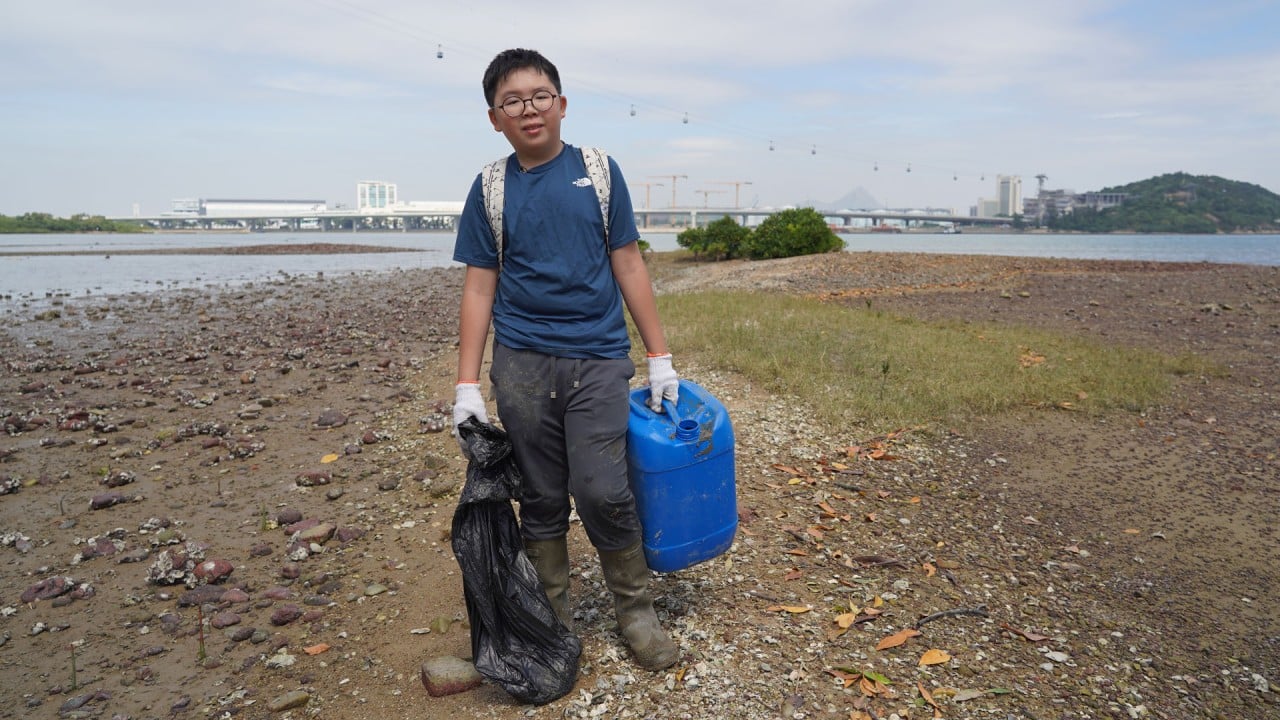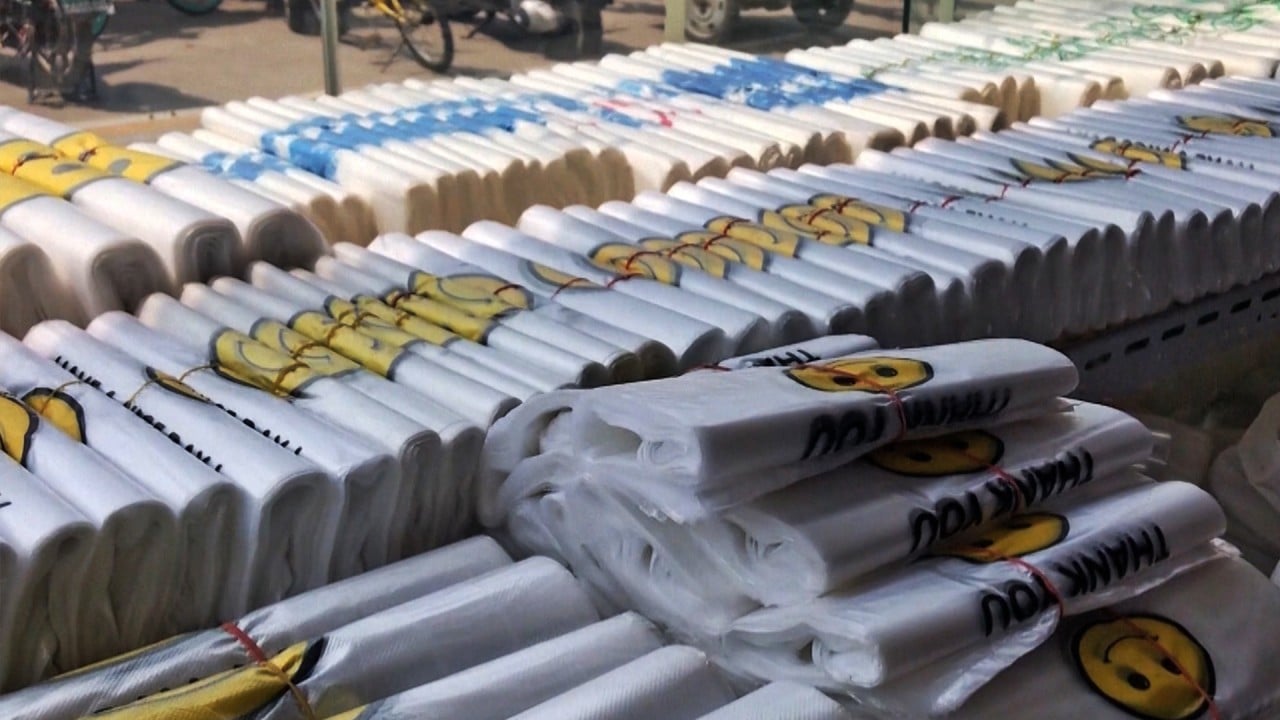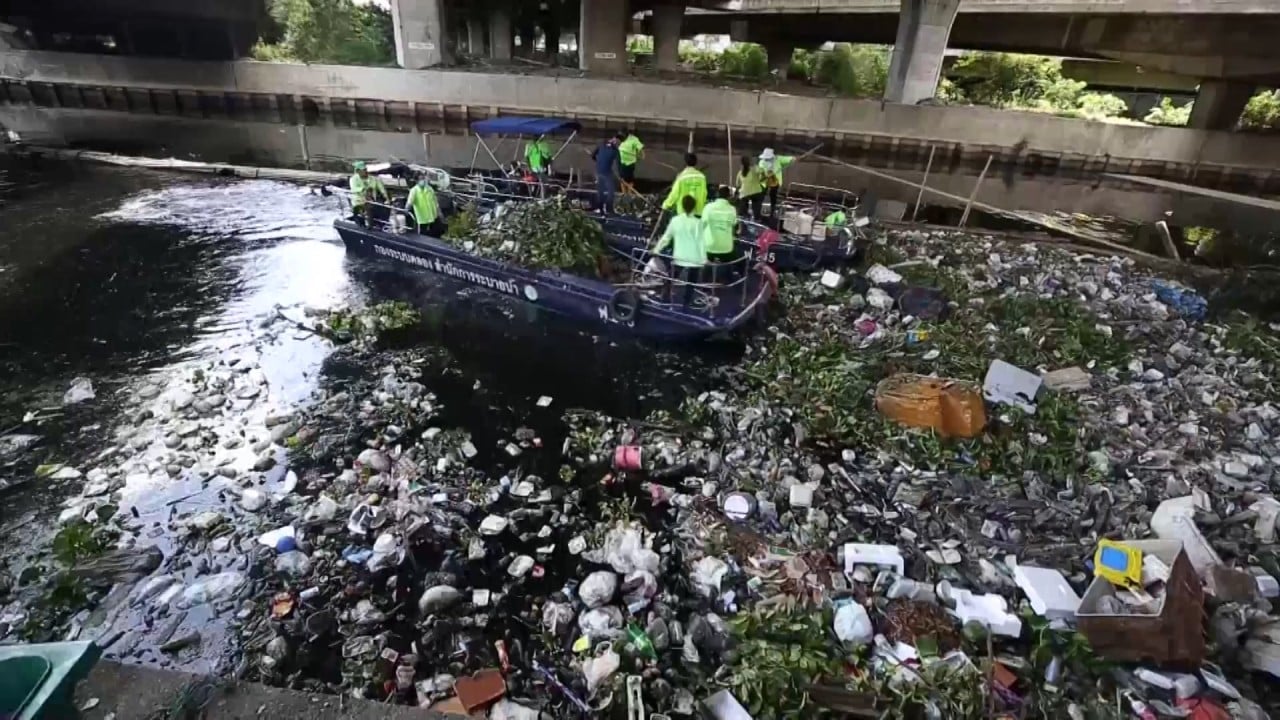
To fight plastic bottle waste, Hong Kong needs a strong producer responsibility scheme
- The suggestions put forward in the government’s public consultation will only make the city’s plastic bottle problem worse
- Mandatory reduction and recycling targets with meaningful penalties for producers and importers will help create the incentives to fix the problem
The government’s public consultation for a producer responsibility scheme on plastic drinks bottles is open until May 21. I urge people to submit their views.
There are three suggestions in the consultation that will only exacerbate the problem. They are: the 10-cent rebate per bottle returned; not deploying a deposit-return system, and; only regulating plastic bottles.

04:18
Hong Kong’s 11-year-old climate activist on a mission to urge adults help save future generations
Environment Minister Wong Kam-sing probably had a similar experience. Yet, the rebate value proposed today is lower than the amount applied five decades ago.
What’s more, only regulating plastic bottles could trigger a shift to non-regulated pack formats such as liquid cartons. Water has been sold in cartons for some time. Should this trend grow, it would defeat the legislation’s purpose.

01:50
China’s New Year’s resolution: bans on plastic straws, plates, non-biodegradable plastic bags
The European Union has shown the way as all member states are required to establish producer responsibility schemes and meet recycling targets for all types of packaging by the end of 2024. Producers act as the doer while governments act as the checker.
Hong Kong’s administration should set reduction and recycling targets for producers and importers coupled with meaningful penalties to ensure our annual 1.55 billion used PET bottles and other waste containers are collected for recycling locally.

02:09
Thailand’s plastic waste surges as coronavirus lockdown increases demand for food delivery
The administration need not worry about the capability of producers or whether the recycling technologies are ready. These issues will shift to producers, who will do their best to avoid paying any penalty.
The government seems to have no clue which producer responsibility scheme to choose or how to set financial incentives. If producers had a mandatory target, it would not need to make such difficult choices as producers would innovate to complete their green mission.
Nobody wants to pay extra for a drink, so returning a deposit-carrying container would become the norm. However, most people will not bother to claim benefits from producers that are not worth their time.
Edwin Lau Che-feng is executive director at The Green Earth. [email protected]

